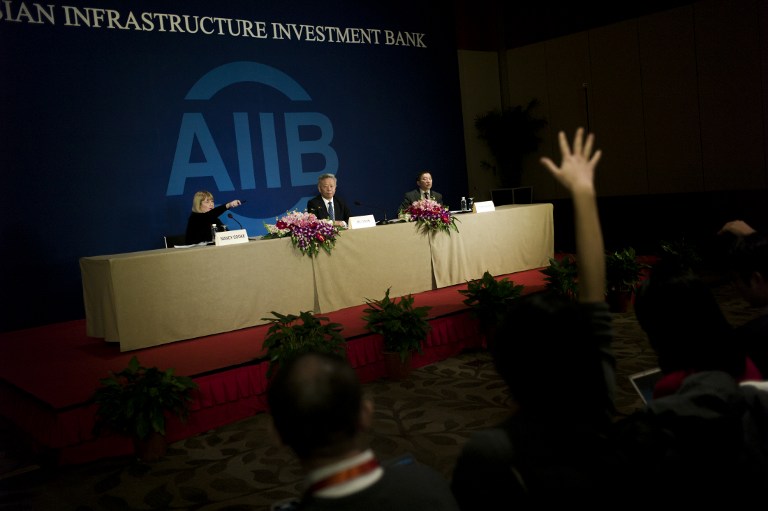
(Eagle News)– The Senate has approved the Articles of Agreement of the Asian Infrastructure Investment Bank (AIIB), with a vote count of 20-1, paving the way for the country’s membership to the China-led international financial institution.
Senator Loren Legarda, sponsor of the Committee Report on the AIIB treaty, said the Philippines’ membership to the AIIB would help the country to achieve growth through accelerated infrastructure spending.
“Infrastructure bottlenecks have stifled our growth potential for many years. More investment is required not only to build new projects but also to maintain existing infrastructure. The AIIB can broaden our infrastructure funding sources,” said Legarda.
The AIIB is an international financial institution which was made through the initiative of China.
According to its website, the AIIB is a “modern knowledge-based institution” which will “focus on the development of infrastructure and other productive sectors in Asia, including energy and power, transportation and telecommunications, rural infrastructure and agriculture development, water supply and sanitation, environmental protection, urban development and logistics.”
“The operational strategy and priority areas of engagement may be revised or further refined by its governing boards in the future as circumstances may warrant,” it said.
The bank has 57 member states including India, Russia, France, Germany and Britain.
In September, the Philippines has already signified its intention to join the China-led AIIB, readying an allocation for this in the 2017 national budget which is required as paid-up capital contribution to become a member.
The Department of Finance (DOF) has already noted that the Bureau of the Treasury’s budget for 2017 almost quadrupled to P6.461 billion, which is in part due to capital subscriptions to foreign financial institutions, including the AIIB.
To attain AIIB membership, the Philippine government has to shell out $196 million, payable in five years or $39 million or over P1.8 billion, per year, as indicative paid-in capital.
This initial tranche must be paid by year-end.
Foreign Affairs spokesperson Charles C. Jose earlier said that the Senate is aware of this December deadline so the government could already submit the ratification papers.







